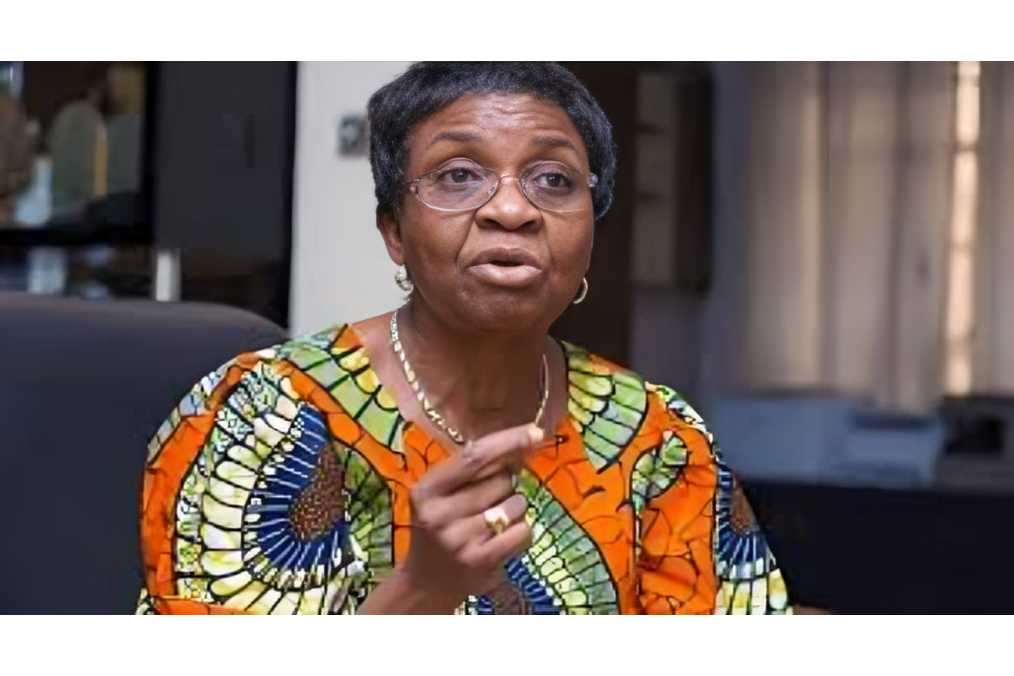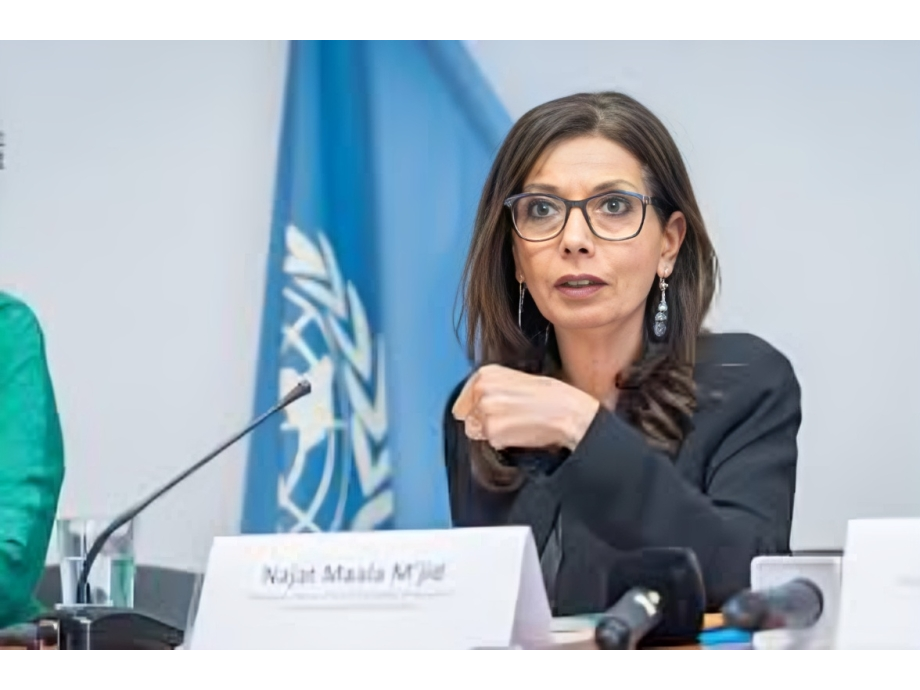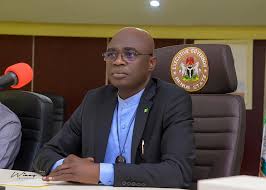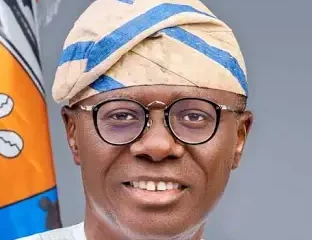Health
Lessons From COVID-19 Pandemic Should Stimulate FG, Stakeholders to Fund NIPRD – DG

The National Institute for Pharmaceutical Research and Development (NIPRD), said lessons from COVID-19 Pandemic should stimulate the FG and stakeholders to fund NIPRD to function as hub for coordination of finding pharmaceutical solutions in healthcare delivery.
The Director General, Dr.
Obi Adigwe, said this on Wednesday in Abuja, at the Joint World Health Organization (WHO)-Stakeholders Feedback Workshop.The workshop is on the Evaluation of the third WHO -Nigeria Country Cooperation Strategy (CCS), (2018-2022) and Development of the fourth WHO Nigeria Country Cooperation Strategy (2023-2027).
The strategic stakeholders’ engagement will come up with new realities for joint strategic health agenda for WHO’s technical cooperation in Nigeria in the next five years.
This will enable WHO to jointly promote, provide, protect, power, and perform for health purposes.
Adigwe, who was represented by Dr. Abubakar Danraka, Special Adviser to DG NIPRD, said NIPRD remained committed to continuing its statutory mandate in undertaking research and development activities that would improve access to health and contribute to the economy.
“We have and will continue to play a lead role in articulating the prioritization of innovative Pharma intervention in healthcare delivery in Africa.
“Solutions for African healthcare delivery issues must come from Africans who have the willingness and capacity to engage vigorously with relevant issues,” he said.
He said that NIPRD had demonstrated cognate capacity, experience and expertise to lead in innovative Pharma intervention and remained partnership-ready to collaborate with other critical stakeholders at all times.
“This is geared towards promoting integration of Herbal Medicine into Conventional Medicine with the goal of expediting attainment of Universal Health Coverage (UHC),” he said.
Dr. Ahmed Abdulwahab, Senior Health Advisor, Nigerian Governors Forum, said that effective engagement of states and local governments was crucial in strengthening healthcare delivery towards achieving UHC in the country.
He said it would foster meaningful connections, inspire action and build trust.
Abdulwahab said it was thus important to actively involve the subnational (on national interventions) very early in the design of interventions not much later down the road during implementation and evaluation.
The former Chairman, Senate Committee on Health, Sen. Ibrahim Oloriegbe, said that federalism posed an additional layer of complexity to the country’s health system.
Oloriegbe said that the lack of true autonomy for lawmakers at the sub-national level made it difficult to deliver their statutory functions, especially the accountability function.
“Sub-optimal implementation of provisions from existing health legal frameworks (eg. NHAct) is inimical to achieving health sector objectives.
“Low absorptive capacity of health MDAs should be addressed to accelerate progress.
“Though we have made progress in community involvement in health governance, we need to do more to improve the performance of our community health structure,” he said.
He said that the complexity created by federalism was further compounded by a lack of clarity in constitutional separation of health management roles among the tiers of government.
“The opacity in the constitutional separation of health management roles gives rise to a situation where tiers of government intervene at the level of health care delivery they so wish.
“The aforementioned weakens the accountability in the health sector,” he said.
Earlier, Dr. Walter Kazadi Mulombo, WHO Country Representative to Nigeria, said the workshop discussions aimed at aligning WHO’s core functions to promote, provide, protect, power, and perform for health with the Nigerian government and stakeholders’ health priorities at national and sub-national levels.
Kazadi said “this Joint workshop will amongst other outcomes, help to provide guidancee and in addition, proffer some answers to difficult questions.
He said such difficult questions are: “Why are the health indicators of the country not improving and what game-changing role should WHO be playing in the 4th Generation CCS, to positively impact health in Nigeria.
“ More fit-for-purpose, more resourced, and more empowered, we will strengthen strategic partnerships with you all at the national and sub-national levels to promote coordination, accountability, sustainability and value-for-money.”
NAN reports that the CCS is a medium-term strategic document that presents WHO’s vision for technical cooperation with a given member state, in support of the country’s national health policy, strategy, or plan.
Introduced in the year 2000, its purpose is to co-create a strategic agenda that aligns WHO’s collaboration with other UN bodies and development partners at the country level, based on identified needs.
WHO in Nigeria had developed and successfully implemented three generations of the CCS.
The current CCS which was originally developed in 2014, was reviewed in 2028 and extended to 2022 to respond to the SDGs in line with the Nigeria Economic Recovery and Growth Plan, the National Health Policy 2016, and the National Strategic Health Development Plan II, among others.
(NAN)
General News
NAFDAC Announces WHO Prequalification of Locally Made Syringe

The National Agency for Food and Drug Administration and Control (NAFDAC), says a 0.5ml Auto Disable Syringe produced by Afrimedical Manufacturing and Supplies Ltd, has achieved World Health Organisation (WHO) prequalification.
NAFDAC Director-General, Prof. Mojisola Adeyeye, disclosed this at a news conference on Wednesday in Lagos, describing it as a significant milestone for Nigeria and the West and Central Africa region.
According to Adeyeye, Afrimedical, located in Ogun, is the first indigenous syringe manufacturer in Nigeria—and the entire West and Central Africa—to receive WHO prequalification for its syringes.
She noted that the achievement followed a rigorous process, substantial investment, and technical support and guidance provided by NAFDAC.
“This milestone aligns with the agenda of the President Bola Tinubu-led administration to promote local production of medical products,” she said.
“It is with great joy that I announce that, after a rigorous process, the WHO has prequalified Afrimedical’s 0.5ml AD Syringes.
“They are now eligible for national and international procurement by relevant agencies and organisations.”
Adeyeye added that Afrimedical was now the first manufacturer in West Africa to be recognised by WHO as operating at an acceptable level of compliance with Good Manufacturing Practice (GMP) requirements.
She emphasised that NAFDAC, in its drive to become a world-class regulator, embraced global best practices in all aspects of medical product regulation.
In 2023, only three out of seven indigenous syringe manufacturers in Nigeria were functional, collectively operating at less than 20 per cent of their combined installed capacity of 2.5 billion syringes per year, she revealed.
Adeyeye highlighted NAFDAC’s “5+5” policy, introduced in 2019, which restricted the importation of medicines and devices that could be produced locally.
“Products with five-year registration validity that can be manufactured in Nigeria will be granted one final five-year renewal, after which importation will no longer be allowed,” she explained.
Following NAFDAC’s attainment of WHO Maturity Level 3 in 2023, the agency began engaging international procurement bodies, such as UNICEF’s supply division in Copenhagen, to promote patronage of locally manufactured medical products, including syringes.
The Director-General urged other indigenous manufacturers to emulate Afrimedical’s achievement through collaboration and alignment with NAFDAC’s regulatory goals.
Also speaking at the event, Afrimedical General Manager, Mr Gabi Al-Aridi, described the WHO prequalification as a major milestone for the company, NAFDAC, and Nigeria as a whole.
Al-Aridi praised the federal government’s efforts to support local production and stated that “Afrimedical currently produces about 1.8 billion syringes annually.”
He reaffirmed the company’s commitment to high-quality, locally made medical products and encouraged Nigerians to embrace them to help boost the nation’s economy.
The National Agency for Food and Drug Administration and Control (NAFDAC), says a medical device, 0.5ml Auto Disable Syringe produced by Afrimedical Manufacturing and Supplies Ltd, has achieved WHO Prequalification.
Prof. Mojisola Adeyeye, the Director-General of NAFDAC disclosed this at a news conference in Lagos on Wednesday.
Adeyeye said the company located in Ogun State is the first st local manufacturer of syringes in Nigeria and also in West and Central Africa region to achieve the laudable feat.
She said the company was able to achieve the feat after a thorough arduous process, heavy investment and technical support and guardians by NAFDAC.
The D-G noted that the feat also align with the agenda of the President Bola Tinubu led administration to support local production of medical products in the country.
“it is with great joy and delight that I have the privilege of informing our stakeholders and the public that, after a rigorous process and a lot of investment by Afrimedical, the WHO has prequalified 0.5ml AD Syringes.
“The syringes have now been added to the WHO list of prequalified syringes and are therefore eligible for national and international procurement by relevant agencies and organisations.
“This is undoubtedly the outcome of meaningful collaboration between the company and NAFDAC, and the systematic implementation of NAFDAC policies over the years.
“Afrimedical has become the first manufacturer of syringes to be recognised by the WHO as operating at an acceptable level of compliance with GMP requirements in West Africa,” he said.
Adeyeye said in line with NAFDAC vision to be a world class regulator that ensures only quality and safe regulated products are used in the country, the agency embraced global best practices in all its regulatory functions of medical products.
She added that only three out of the seven indigenous syringe manufacturer were functional in the country in 2023 and they have a combine installed capacity of over 2.5 billion syringes per annum, while functioning below 20 per cent capacity.
She said:”The Agency started laying a foundational policy in 2019 for local manufacturing of medicines such as 5+5 regulatory.
“This directive which ensures that products that were previously imported with five-year registration validity and that can be manufactured in Nigeria are given the last renewal of five years and thereafter prevented from being imported.
“In 2023, after the attainment of WHO Maturity Level 3, NAFDAC engaged UNICEF supply chain in Copenhagen and at a workshop in Lagos to patronize locally manufactured medical products including syringes.
The Director-General, however, encourage other well-meaning local manufacturers of medical products to emulate this feat through harmonization of collective aspiration and synergy of effort with NAFDAC’s relevant directorates.
Speaking also, the General Manager of Afrimedical Manufacturing and Supplies Limited, Mr. Gabi Al-Aridi described the feat as a major milestone for the company, NAFDAC and Nigeria at large.
Al-Aridi, who commended the federal government for promoting local production of pharmaceutical products said the company producing about 1.8 billion syringes per annum.
He reiterated the company dedication to providing high-quality, locally manufactured syringes, while urging Nigerians to embraced locally made syringes to boost the nation’s economy.(NAN)
Health
UN lauds FCT’s Multisector Approach to Ending SGBV

The United Nations has commended the Federal Capital Territory Administration (FCTA) for its multisectoral approach to ending all forms of Sexual and Gender-Based Violence (SGBV).
Dr Najat M’jid, Special Representative of the UN Secretary-General on Violence against Children, gave the commendation in Abuja on Tuesday, when she visited the Awyetu Sexual Assault Referral Centre (SARC).
The SARC, located at Bwari General Hospital was established in 2020 by the British Council on behalf of the European Union under its Rule of Law and Anticorruption (ROLAC) Programme.
The centre was established to provide comprehensive medical, psychological, and legal support to survivors of sexual violence, with a special focus on children and vulnerable populations.
M’jid expressed excitement with the synergy among the different sectors working together to eliminate all forms of SGBV in the FCT.
“I am happy today because of what I have seen – many ministries are onboard supporting the fight against SGBV.
“This is because the problem is not only the problem of FCT Women Affairs; the issues are also in health, in Justice, and in communities,” she said.
She said that she was in the country to understand what was being done to address SGBV, “and how together, we can move forward”.
She added that Nigeria was one of the paths finding countries on ending violence against children.
She also said that the country was very involved and very committed to end all forms of violence against children and had made pledges.
“Visit to Nigeria is to see how we can move ahead, how we can support and how we can achieve set targets from the many commitments the country has made.
“We want to see how we can translate those commitments into concrete services that will prevent and address all forms of violence against children,” she said.
The special representative, however, stressed the need to address the drivers of SGBV, detect and respond to reported cases and ensure that it was not happening again.
She further said: “It is really important to make sure that the victims can be heard, be considered and be seen as victims and make the perpetrators accountable.
“There is also the need to stop justifying violence against children and women through poverty and through social norms”.
Earlier, the Mandate Secretary, FCT Women Affairs Secretariat, Mrs Adebayo Benjamins-Laniyi, pointed out that a multisectoral problem required a multisectoral approach to tackle it.
Benjamins-Laniyi said that a stronger synergy was required among critical stakeholders to deliver critical intervention from the local to the state level, in line with global best practices.
She described M’jid visit as a “positive disruption” that sparked a desire to strengthen partnership and collaboration among the different stakeholders to do more for women and children in the FCT.
The mandate secretary said that the FCT Administration had rolled out plans to reposition the SARC centre to provide quality integrated services to SGBV survivors.
Also, the Mandate Secretary, Health Services and Environment Secretariat, Dr Adedolapo Fasawe, said that M’jid’s visit reaffirmed the global resolve to protect children from violence.
Fasawe, who was represented by the Permanent Secretary in the secretariat, Dr Baba-Gana Adam, added that the visit was very encouraging.
She added that the visit also reinforced the role of sexual assault centre in ensuring access to care, justice, and dignity for survivors of sexual and gender-based violence.
She disclosed that the hospital had continued to sustain the provision of services at the centre when the ROLAC support ended, but amidst numerous challenges.
The mandate secretary, identified some of the challenges as funding for essential drugs and kits, staff training and incentives, inconsistent collaboration with law enforcements, and absence of prevention and community awareness programmes.
Foreign News
WHO: Social Factors Outweigh Genetics In Shaping Global Health

Housing, income, education, and other social conditions have a greater impact on health than genetics or the quality of health-care systems, according to a new World Health Organisation (WHO) study.
The research, set to be presented and live-streamed from Geneva on Tuesday, found that social determinants such as poverty, discrimination, and lack of access to resources account for more than 50 per cent of health outcomes.
These “social determinants of health equity” include the environments in which people are born, live, work, and age, as well as their access to power, money, and opportunity.
“These factors create unjust and avoidable health gaps,” said WHO Director-General Dr Tedros Adhanom Ghebreyesus.
“Billions of people face higher risks of illness and death simply because of the conditions they’re born into or the social groups they belong to.”
Tedros emphasised that much of the global disease and mortality burden was preventable, calling health inequity a result of political and social decisions that global leaders had the power to change





















